Christopher Nolan: Cillian Murphy is 'one of the great actors of his generation'
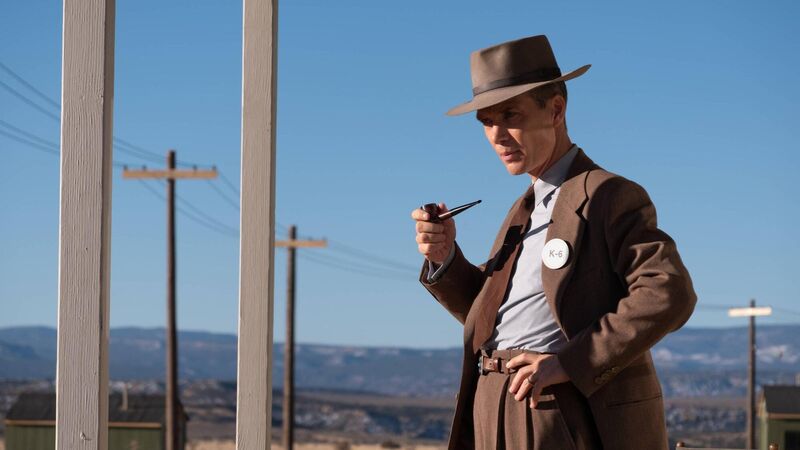
Cillian Murphy as J. Robert Oppenheimer. ’Oppenheimer’ director Christopher Nolan says Murphy is “one of the great actors of his generation. Picture: Melinda Sue Gordon/Universal Pictures/© Universal Pictures
Upon witnessing the detonation of the world’s first nuclear bomb on July 16, 1945, J Robert Oppenheimer, the “father of the atomic bomb”, reportedly displayed an expression of “tremendous relief”.
Having worked tirelessly on this weapon of mass destruction as head of the Manhattan Project, fearful that Nazi Germany could develop a nuclear arsenal before any other country, it’s no surprise that the world-leading physicist was glad that the Trinity test was successful.
However, this relief carried with it an enormous weight: Oppenheimer and his team had irrevocably changed the world forever. Man now held colossal destruction in the palm of its hand, setting the stage for large-scale attacks on Hiroshima and Nagasaki, and for the Cold War.
Oppenheimer and his deadly victory are the focus of Inception director Christopher Nolan’s latest venture, the epic biographical thriller Oppenheimer.
By telling the story through the eyes of the man himself, it poses the question: what does creating the deadliest weapon ever known do to a person, and how do they cope with the aftermath?
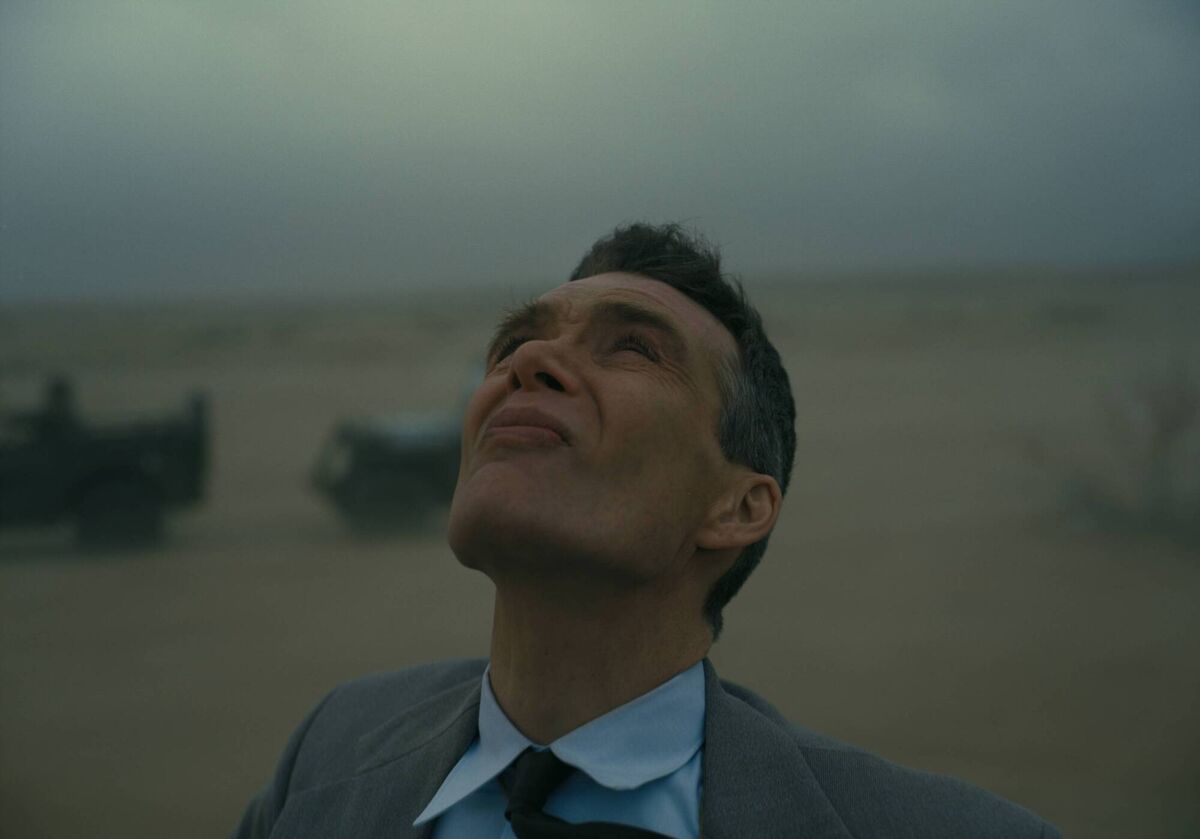
Portraying the physicist in Nolan’s three-hour feature is Peaky Blinders star Cillian Murphy, who says that the immense moral quandary explored in the film sat heavy in his mind, too.
“It does affect you, for sure,” says Murphy, 47, of the existential weight of the intense role.
“You don’t know it on a conscious level, but on an emotional, kind of atomic level, it really, really affects you.
“And in this movie, the moral dilemmas and the paradoxes that the character was grappling with, emotionally and morally and psychologically, were huge.
“So it does take a toll, but in a brilliant way… It was the biggest, most exhilarating challenge.”
Oppenheimer’s story, fraught with moral quandary and existentialism, is perfect fodder for writer-director Christopher Nolan.
Nolan’s back catalogue, which includes 2000’s Memento, 2014’s Interstellar and 2017’s Dunkirk as well as the Christian Bale-fronted Batman trilogy, shows he is no stranger to philosophical filmmaking.
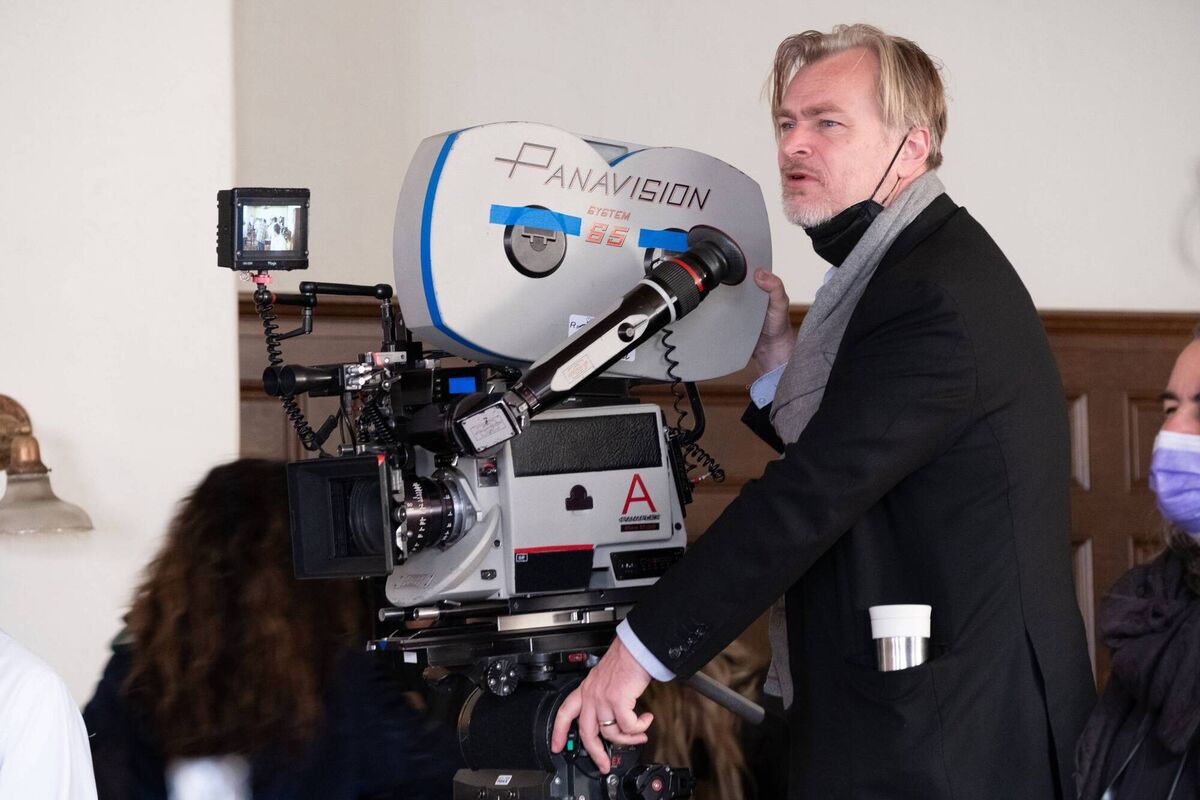
“It’s hard to know exactly when I first got interested in Oppenheimer’s story,” says Nolan, 52.
“As a kid growing up in England (in) the early 80s, the concern with nuclear weapons in pop culture was enormous. My friends and I, we were 12 or 13 at the time, we all discussed and believed that we would probably die in a nuclear holocaust at some point.
“Sting had his song Russians out, somewhere in that period, and he referred to Oppenheimer’s deadly toys, meaning nuclear weapons. So (I had) been aware of the name for a long time.
“At some point, I chanced upon this fact that Oppenheimer and his colleagues, during the Manhattan Project, had been unable to completely eliminate the possibility that the chain reaction would destroy the entire world when they triggered the first test of the atomic device – and yet, they went ahead and they pushed that button.”
“I think Oppenheimer’s story is the most dramatic I’ve ever encountered,” he adds.
And who better to take on the task of bringing this scientific, political, emotional, and ultimately human story to the big screen than Nolan?
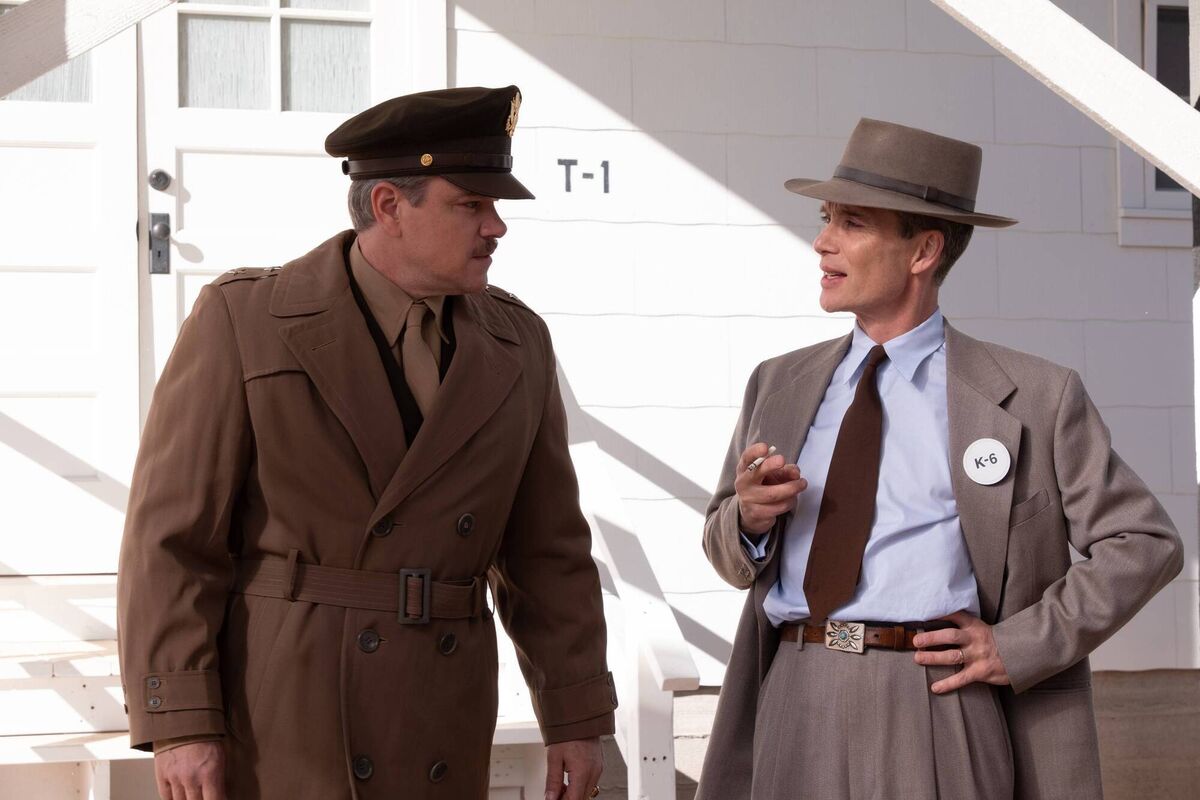
“There’s nobody working who does movies at this scale where the acting is so good, and he really understands the intimacy and the humanity of people, but also understands story and wants to ask big questions,” says Matt Damon, 52, who plays Leslie Groves, director of the Manhattan Project.
“His films are very ambitious, but they’re very human, too, and that’s why people relate to them.”
Damon joins a star-studded cast list which, alongside Cillian Murphy, includes Robert Downey Jr, Florence Pugh, and Emily Blunt.
Pugh and Blunt portray two of the central women in Oppenheimer’s life – his romantic partner Jean Tatlock and his wife Kitty Oppenheimer, respectively – and Nolan’s portrayal doesn’t underestimate the influence the women in the scientist’s life had on his trajectory.
Blunt, known for starring in The Girl On The Train and A Quiet Place, says Oppenheimer’s wife Kitty – a biologist turned housewife – was “unusual for the time because there was a kind of unwillingness to conform to the 1950s ideal housewife – she certainly wasn’t reading Good Housekeeping!”
“She was like: ‘When can I have a martini? And when can I pass my children off to someone else?’” adds the 40-year-old actress.
“I think that she was such an exhilarating person to play. She’s super-complicated, and not without her demons. But it was very true to what was real about her… there was a lot of inner struggle at having to be a housewife.
“She was probably meant for vast intellectual endeavours, similar to him. But she did adore him and worship him. And so there was so much to play with, with that marriage.”
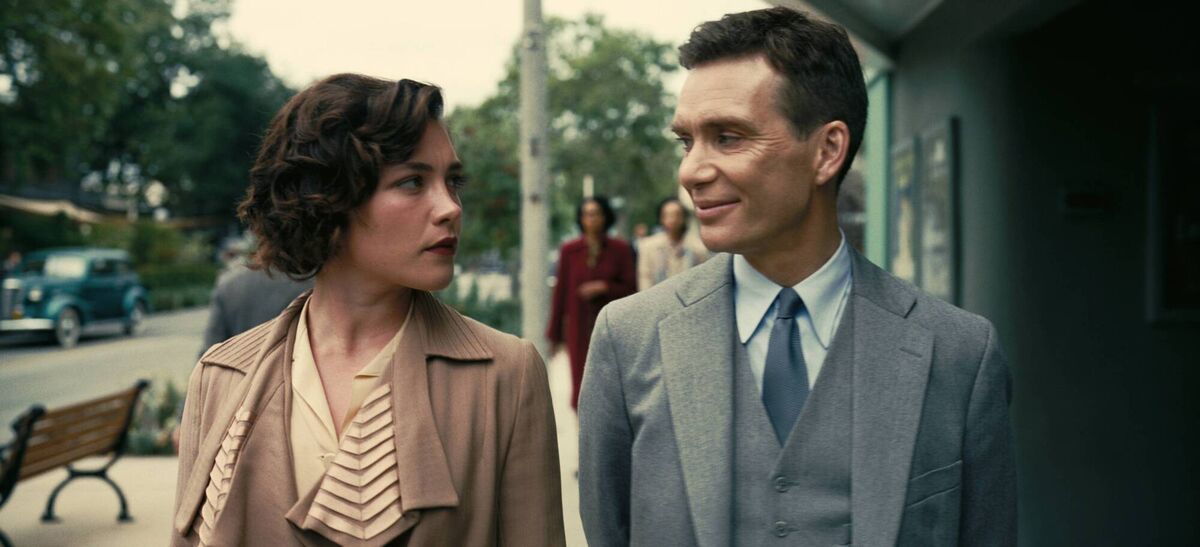
For Midsommar and Little Women star Pugh, 27, playing the Communist Party member and psychiatrist Jean Tatlock meant plenty of “unique, quiet moments” as she explored the couple’s relationship with Murphy.
“And I think the most exciting thing for me was: it’s a completely unique world,” Pugh says of Tatlock and Oppenheimer’s relationship.
“Despite them meeting in these places, she really has nothing to do with the second chapter of what he decides to do.”
While Nolan’s film includes commendable performances portraying those closest to Oppenheimer, it is, at its heart, a first-person narrative centred around the man himself.
Nolan presented the script – which was also written in the first person – to Murphy, who he says is “one of the great actors of his generation”, and invited him to go on this journey with him.
“He has this incredible ability, the ability of a great actor to be empathetic with the audience, to allow them access to his feelings, to his thoughts,” says Nolan.
“And that was really the journey we were on.
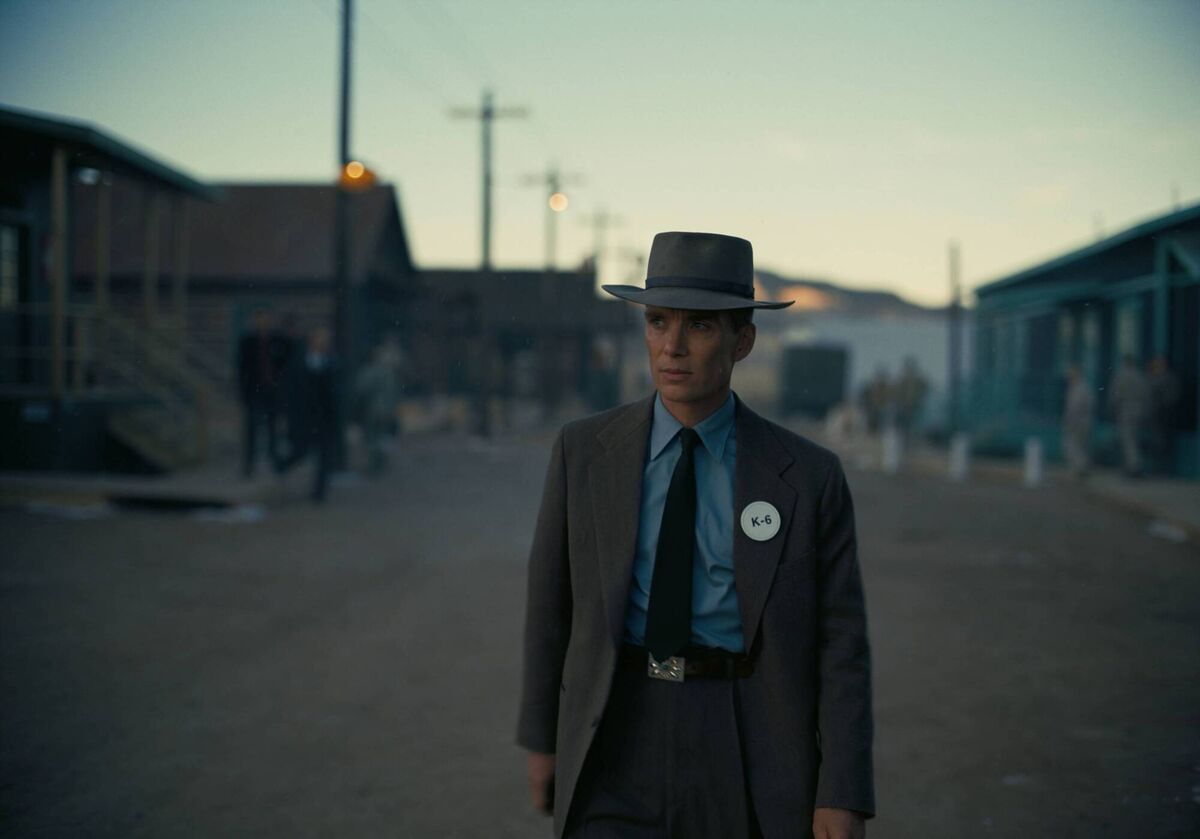
“The first thing I told him is: I’m not looking for any kind of impersonation of the real life Oppenheimer. Use what works for you, use what helps you, gives you something to grab hold of in the preparation. But really, it’s an interpretation.
“The film is not a documentary. It’s his, it’s Cillian’s and my, everybody else’s, interpretation of what it would have been to be this man at this incredible time.”
“There’s no-one really making films like Chris, and the way he presents them,” echoes Murphy, who has worked with the director several times including on his Batman films, as well as Inception and Dunkirk.
“He’s an incredible writer, amazing with actors, an incredible visual filmmaker, and then the way he presupposes a level of intelligence in his audience. He never patronises his audience.
“So it was a gift, really. It’s always been a gift for me, every time I’ve worked with him.”


